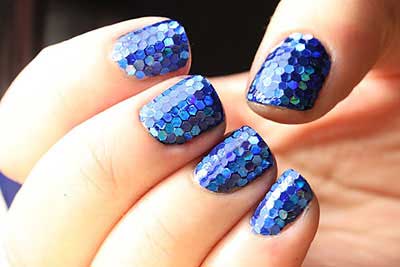We all want our nails to be trim and shapely, but have we given a thought to how much pressure they actually stand under? It is both physical pressure when we lift or carry heavyish things or get a tight grip on something, and exposure to substances that can be pretty harmful, like detergents, cleaning agents, or even coats of polish with chemicals in them. Consider, then, a broken or damaged nail – it looks awful, can hurt badly and hamper our hand activity significantly.

So a few tips as to how to take better care of your nails seem to be in order. They will minimize the sudden unpleasantness from a broken or chipped nail.
1. Showers are bad for nails
Long exposure to hot water affects nails adversely, they can become brittle and soft, so if you are inclined to tarry in a hot bath, in the sauna or a steam room, keep in mind that your nails may need some protection – especially if they are not so strong in the first place.
2. Biting nails ruins them
Even if biting nails helps you quieten down or think deeply, you lose in nails what you gain otherwise, for it is an atrocious habit altogether. You destroy your nails through biting, they break more easily. Besides, bacteria from under the fingernails find their way to your mouth, and you run the risk of catching an infectious disease.
3. Nails need regular trimming
Frequent trimming is good for your nails the same as for your hair. If nails grow longer, they stand a higher chance to get caught and chip or break off, so the idea is not to let them grow too long.
Clipping should always be followed by filing, it will make your nail edges stronger and less susceptible to pressure.
4. Nails and hands should be kept moisturized
Yes, nails need regular moisturizing just like any other part of the body. The best way is to treat your hands and nails with a moisturizer at the beginning and end of the day.
When you wash your hands, take the trouble to add a few drops of moisturizer, it is an easy expedient to maintain the health of your nails.
5. Protect hands with gloves doing housework
Household cleaning agents contain many chemical compounds, some of which are harmful for the nails. They become weaker and may start to peel.
If the work you’re doing is physically more strenuous and puts pressure on the nails, like garden work, wear special gloves with better protection.
6. Nails’ health depends on your diet
Your nails in their turn need vitamin supply, therefore you ought to be aware of what vitamins are necessary to maintain their health. The most important of them are:
Vitamin B
Good sources of vitamin B are peanuts, lentils, and legumes in general, mushrooms, egg yolks, sardines, bananas, cauliflower, liver. They also bring in biotin, a substance which makes the nails stronger and prevents them from chipping and splitting.
Calcium
It is an all-important feed, because nails are almost completely calcium. Dairy products have enough of it, so include milk, yoghurt and cheese in your diet, and also broccoli.
Soy
Soy is another excellent source of nutrients for nails. They will benefit from your having tofu, tempeh, soy milk, and other soy-based foods.
7. Treat nails with a good polish
Nail polish is always a way to strengthen your nails against breaking. All sorts are suitable, even clear polish; if your nails get too soft, look for specially formulated polishes that will impart extra strength to them.
As your polish begins to peel off, don’t be in a hurry to remove it, first try and touch it up. When it’s time to use a remover, see that yours has no acetone content – acetone gets nails too dry, and therefore easier to chip or peel.










